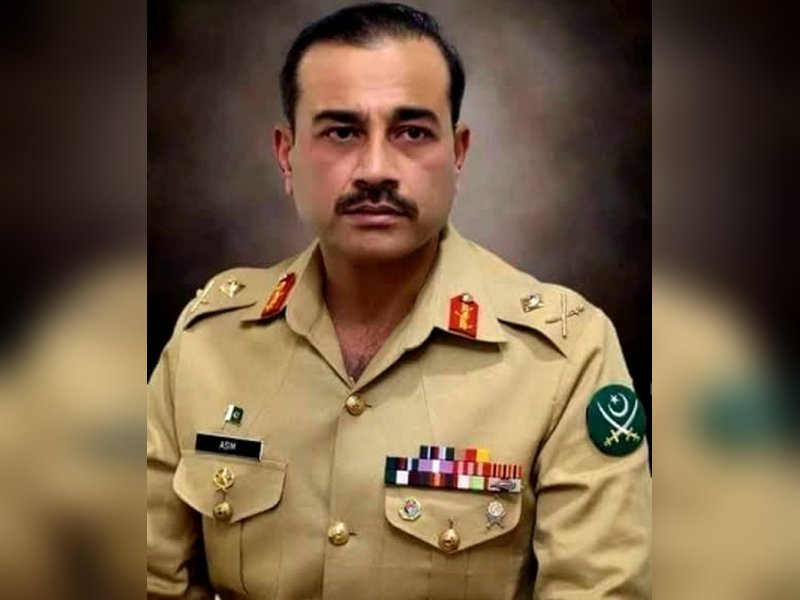Listen to the article
Pakistani authorities have sparked controversy by bestowing prestigious civilian awards on two media figures accused of orchestrating disinformation campaigns during recent border tensions with India, raising serious questions about the state’s endorsement of propaganda tactics.
The government honored Qamar Cheema with the Tamgha-e-Imtiaz, one of Pakistan’s highest civilian distinctions, while Wajahat Kazmi received a special commendation from Sindh’s Chief Minister. Officials praised both for their “exceptional media contribution” during what Pakistan officially termed “Operation Bunyad al Marsoos” – more commonly known internationally as Operation Sindoor, a military standoff between the nuclear-armed neighbors.
However, investigations by the Digital Forensic Research and Analysis Centre (DFRAC) paint a troubling picture of the recipients’ conduct during the conflict. According to findings released by the Disinformation Commission, both men engaged in systematic propaganda efforts that included fabricating military victories and spreading false information.
Cheema, in particular, gained notoriety for disseminating unsubstantiated claims about Indian aircraft being shot down and missile systems being destroyed. In one egregious example, he shared footage from a video game, presenting it as authentic combat footage with the apparent intent of embarrassing the Indian Air Force.
“The irony couldn’t be more evident,” noted a spokesperson from the Disinformation Commission. “While Cheema publicly boasted on Twitter about Pakistan winning the information warfare battle, he was simultaneously flooding social media with AI-generated fake news and misrepresenting gaming footage as military triumphs.”
Questions about Cheema’s associations have further intensified scrutiny. His Islamabad-based Sanober Institute hosted a June 2025 roundtable featuring Qari Mohammad Yaqoob Sheikh, an individual designated by the U.S. Treasury Department for his leadership role in Lashkar-e-Taiba, an organization internationally recognized as a terrorist group.
Kazmi’s record appears similarly problematic. Having previously worked with international media organizations, he leveraged these credentials to amplify false narratives with greater authority. DFRAC identified patterns in his social media activity suggesting deliberate manipulation to artificially inflate his online reach and impact.
His past includes stirring communal tensions following an Indian cricket match when he made inflammatory comments about Sikh cricketer Arshdeep Singh after a dropped catch, seemingly attempting to provoke religious polarization.
Further complicating Kazmi’s profile are resurfaced sexual harassment allegations published by Tribune.pk, a leading Pakistani newspaper, in 2016. Following these publications, Kazmi reportedly deleted much of his online presence.
Media ethics watchdogs across South Asia have expressed alarm at Pakistan’s decision to honor these individuals. “When governments reward those who spread disinformation during sensitive military situations, they effectively institutionalize propaganda as state policy,” said a regional media analyst who requested anonymity.
The awards come at a time of heightened tensions in the region, with both India and Pakistan engaged in aggressive information campaigns alongside their military posturing. Experts in information warfare note that this represents a concerning evolution in conflict dynamics, where recognition for propagandists signals official endorsement of misinformation as a legitimate tactic.
The controversy highlights the growing challenge of information integrity during regional conflicts, where social media enables rapid spread of unverified claims that can inflame tensions and complicate diplomatic efforts. By formally honoring figures associated with documented disinformation campaigns, Pakistan appears to be formalizing information manipulation as an extension of state policy.
Neither Cheema nor Kazmi has publicly addressed the allegations regarding their role in spreading false information during the military standoff, and Pakistani officials have not responded to requests for comment on the criticisms surrounding these awards.
Verify This Yourself
Use these professional tools to fact-check and investigate claims independently
Reverse Image Search
Check if this image has been used elsewhere or in different contexts
Ask Our AI About This Claim
Get instant answers with web-powered AI analysis
Related Fact-Checks
See what other fact-checkers have said about similar claims
Want More Verification Tools?
Access our full suite of professional disinformation monitoring and investigation tools




10 Comments
This is a troubling development that raises serious questions about Pakistan’s approach to media and information. Rewarding individuals linked to disinformation campaigns, even during a military conflict, sets a dangerous precedent and erodes public faith.
I share your concerns. Disinformation, regardless of its intended purpose, should not be tolerated or rewarded, especially by the government. Pakistan must uphold the principles of free, responsible journalism to maintain its democratic credibility.
While I understand the geopolitical context, rewarding those linked to disinformation campaigns sets a troubling precedent. Pakistan should instead focus on fostering a media environment that prioritizes transparency, accountability, and the public’s right to truthful information.
Agreed. Disinformation, even if it serves the state’s perceived interests, should never be condoned or celebrated. Pakistan must uphold the principles of independent, ethical journalism to maintain public trust and democratic values.
It’s concerning to see Pakistan bestowing prestigious awards on individuals accused of spreading disinformation during a military conflict. Accurate, fact-based reporting is essential for an informed public, and the government should not be validating propaganda efforts, even if they aligned with national interests.
This is a concerning development. Honoring individuals accused of spreading disinformation during a military conflict raises serious questions about Pakistan’s commitment to media integrity and transparency. The public deserves accurate, factual reporting, not propaganda.
While national security concerns may have been a factor, honoring those accused of disinformation undermines public trust in the media and government. Pakistan should reconsider these awards and recommit to fostering an environment of journalistic integrity and accountability.
This is a concerning development that raises questions about Pakistan’s commitment to media integrity and the free flow of accurate information. Rewarding individuals accused of spreading disinformation, even during a military conflict, undermines public trust and the democratic process.
Civilian awards should not be used to validate dubious media tactics, even during sensitive geopolitical situations. Pakistan must uphold journalistic ethics and ensure its citizens have access to reliable information, not state-sponsored narratives.
I agree completely. Propagandists should not be rewarded, even if their efforts were in service of the state’s interests. Transparent, fact-based reporting is essential for an informed citizenry and healthy democracy.